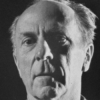Edward Weston

Edward Weston
Edward Henry Westonwas a 20th-century American photographer. He has been called "one of the most innovative and influential American photographers…" and "one of the masters of 20th century photography." Over the course of his 40-year career Weston photographed an increasingly expansive set of subjects, including landscapes, still lifes, nudes, portraits, genre scenes and even whimsical parodies. It is said that he developed a "quintessentially American, and specially Californian, approach to modern photography" because of his focus on the people and...
NationalityAmerican
ProfessionPhotographer
Date of Birth24 March 1888
CityHighland Park, IL
CountryUnited States of America
Modern Art is being used to index me. Surely it was a source but photographers have influenced Modern Art quite as deeply as they have been influenced, maybe more. Anyway painters don't have a copyright on M. A. We were all born in the same upheaval.
The painters have no copyright on modern art!... I believe in, and make no apologies for, photography: it is the most important graphic medium of our day. It does not have to be, indeed cannot be - compared to painting - it has different means and aims.
As great a picture can be made as one's mental capacity-no greater. Art cannot be taught; it must be self-inspiration, though the imagination may be fired and the ambition and work directed by the advice and example of others.
"Only with effort can the camera be forced to lie: basically it is an honest medium: so the photographer is much more likely to approach nature in a spirit of inquiry, of communion, instead of with the saucy swagger of self-dubbed "artists"."
When a photographer masters the tools and processes of the art, then the quality of the work is only limited by his creative vision.
It's hard not to tell the truth with a camera. Artists are particularly good at that.
Art is based on order. The world is full of 'sloppy Bohemians' and their work betrays them.
In common with other artists the photographer wants his finished print to convey to others his own response to his subject. In the fulfillment of this aim, his greatest asset is the directness of the process he employs. But this advantage can only be retained if he simplifies his equipment and technic to the minimum necessary, and keeps his approach from from all formula, art-dogma, rules and taboos. Only then can he be free to put his photographic sight to use in discovering and revealing the nature of the world he lives in.
Is love like art - something always ahead, never quite attained.
The great scientist dares to differ from accepted 'facts' - think irrationally - let the artist do likewise.
The... arguments against photography ever being considered a fine art are: the element of chance which enters in, finding things ready-made for a machine to record, and of course the mechanics of the medium. ...I say that chance enters into all branches of art: a chance word or phrase starts a new trend of thought in a writer, a chance sound may bring a new melody to a musician, a chance combination of lines, new composition to a painter. ...Chance - which in reality is not chance - but being ready, attuned to one's surroundings - and grasp my opportunity....
The prejudice many photographers have against colour photography comes from not thinking of colour as form. You can say things with colour that can't be said in black and white... Those who say that colour will eventually replace black and white are talking nonsense. The two do not compete with each other. They are different means to different ends.
I would say to any artist: Don't be repressed in your work, dare to experiment, consider any urge, if in a new direction all the better.
Consulting the rules of composition before taking a photograph, is like consulting the laws of gravity before going for a walk.